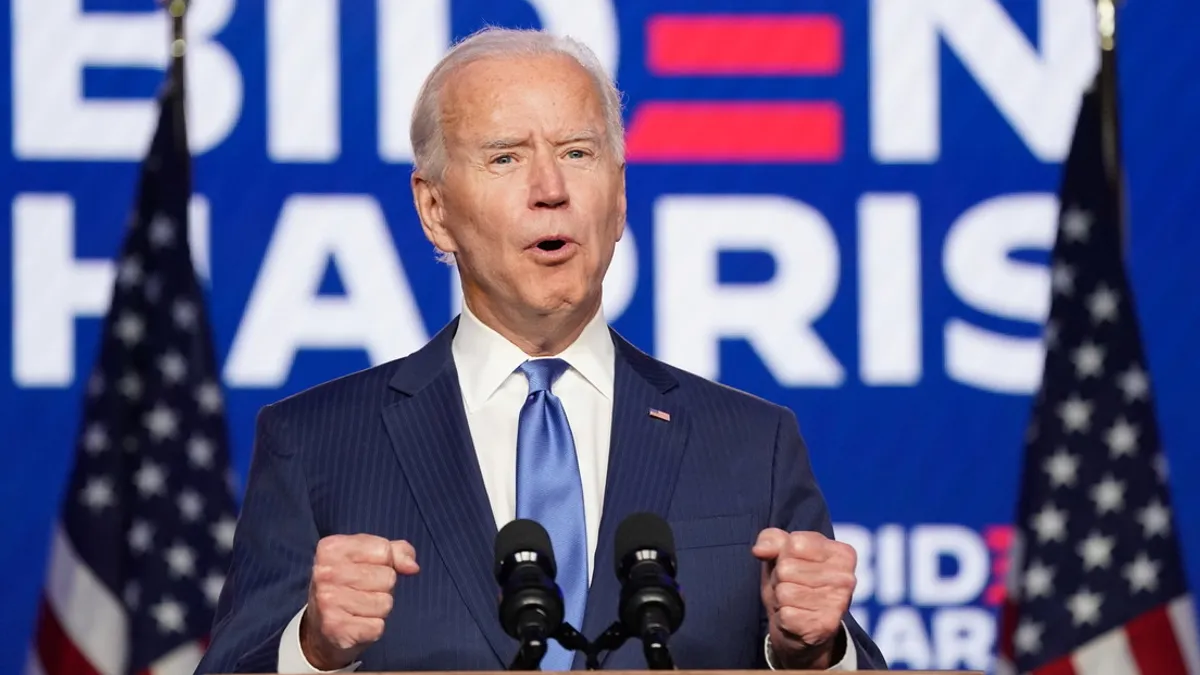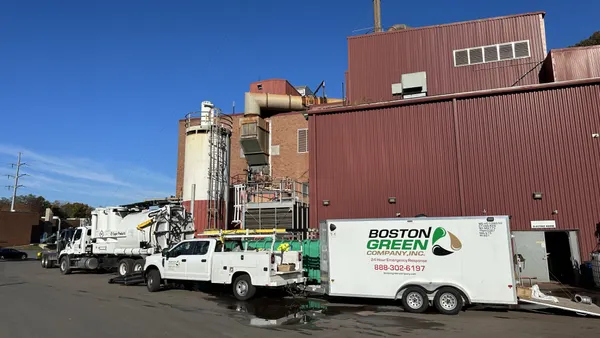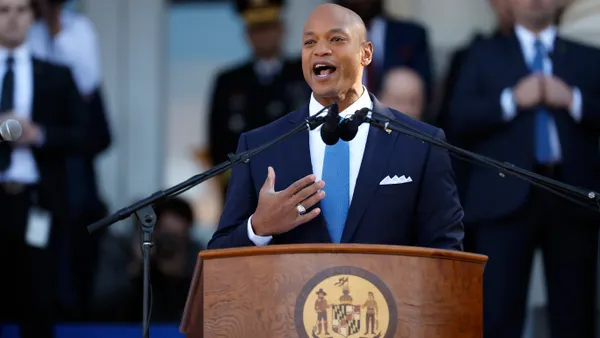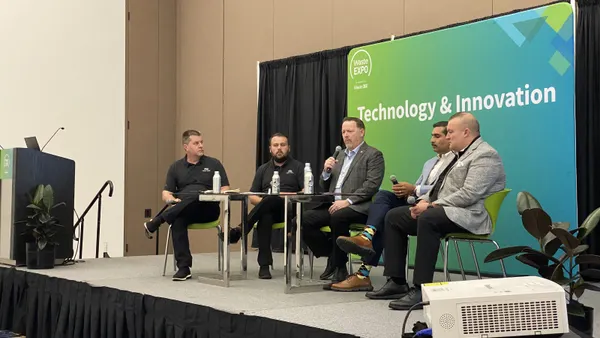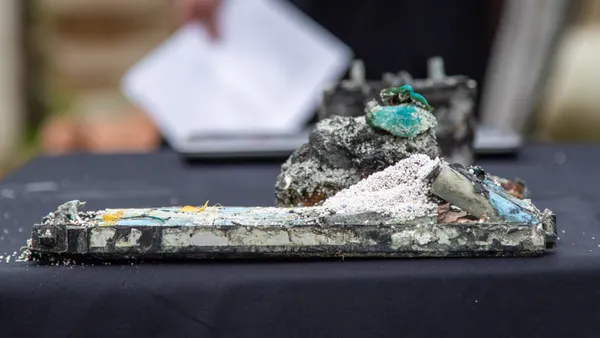Dive Brief:
- City leaders are praising President-elect Joe Biden's $1.9 trillion coronavirus rescue package, unveiled on Thursday, which includes $350 billion in direct assistance for state and local governments.
- Biden's American Rescue Plan pledges the money to keep essential workers paid and employed; distribute the COVID-19 vaccine; scale up COVID-19 testing programs; reopen schools and maintain other services, according to an official fact sheet. "These crises are straining the budgets of states, cities, and tribal communities that are forced to consider layoffs and service reductions," Biden said when unveiling the plan.
- In response to the plan, National League of Cities (NLC) CEO and Executive Director Clarence Anthony issued a statement saying it "brings hope to the millions of Americans in our cities, towns and villages who have been devastated by the effects of this pandemic." Meanwhile, U.S. Conference of Mayors (USCM) President and Louisville, KY Mayor Greg Fischer said the plan shows that Biden understands "we cannot leave American cities behind."
Dive Insight:
Direct aid for city and state governments has been a source of contention as jurisdictions have seen their budgets decimated by the COVID-19 pandemic. Last year, USCM called for $250 billion in federal aid to support flexible emergency assistance for state and local governments, but no aid was forthcoming from Congress in its December relief package.
Biden has signaled a new era of cooperation with local government officials, having promised in late November that his administration would work closely with U.S. mayors. On Thursday, his remarks reiterated that message.
"Vice President-elect Harris and I have been speaking with county officials, mayors, and governors of both parties on a regular basis," Biden said. "We are ready to work with them to help get the relief they need."
Fischer said such help must include investments in public health infrastructure to expedite vaccine distribution and COVID-19 testing, so city services do not continue to suffer. The annual Menino Survey of Mayors in December also found that mayors are strikingly pessimistic about the future fiscal health of their cities, and fear cuts to education, parks and recreation and transportation in a bid to balance the books.
"Providing direct, flexible aid to cities is the most efficient and immediate way for Congress to help families across the country who have been suffering for far too long," Fischer said. "[Cities] of all sizes must have direct, flexible assistance so that they can be a driver rather than a drag on America's recovery."
Biden's proposal includes $20 billion in emergency funding for public transit agencies — less than the $25 billion the sector received in last year's CARES Act, but more than the $14 billion it received in December as part of Congress' $900 billion legislative package.
In a statement, Paul Skoutelas, president and CEO of the American Public Transportation Association (APTA), said the plan recognizes "the critical needs of our industry."
"The proposed emergency transit funding included in the American Rescue Plan is vital to the industry’s survival and will help prevent massive labor cuts and drastic service reductions," Skoutelas said. "Public transportation has served an essential role during this pandemic and is an indispensable part of the social and economic recovery of our communities and our country."
And Shailen Bhatt, president and CEO of the Intelligent Transportation Society of America, said the plan is a "step in the right direction on the path to a long recovery."
"Transit agencies across the country have been sounding alarms for months about dire service cuts, and the proposed $20 billion will go a long way to provide help," Bhatt said in a statement. "While there is a greater need, including among state and local transportation agencies, we are very encouraged by this proposal's laser focus on COVID-related emergency assistance."
Local leaders urged swift passage of the American Rescue Plan through Congress. "There is no time to play partisan politics," Anthony said.



